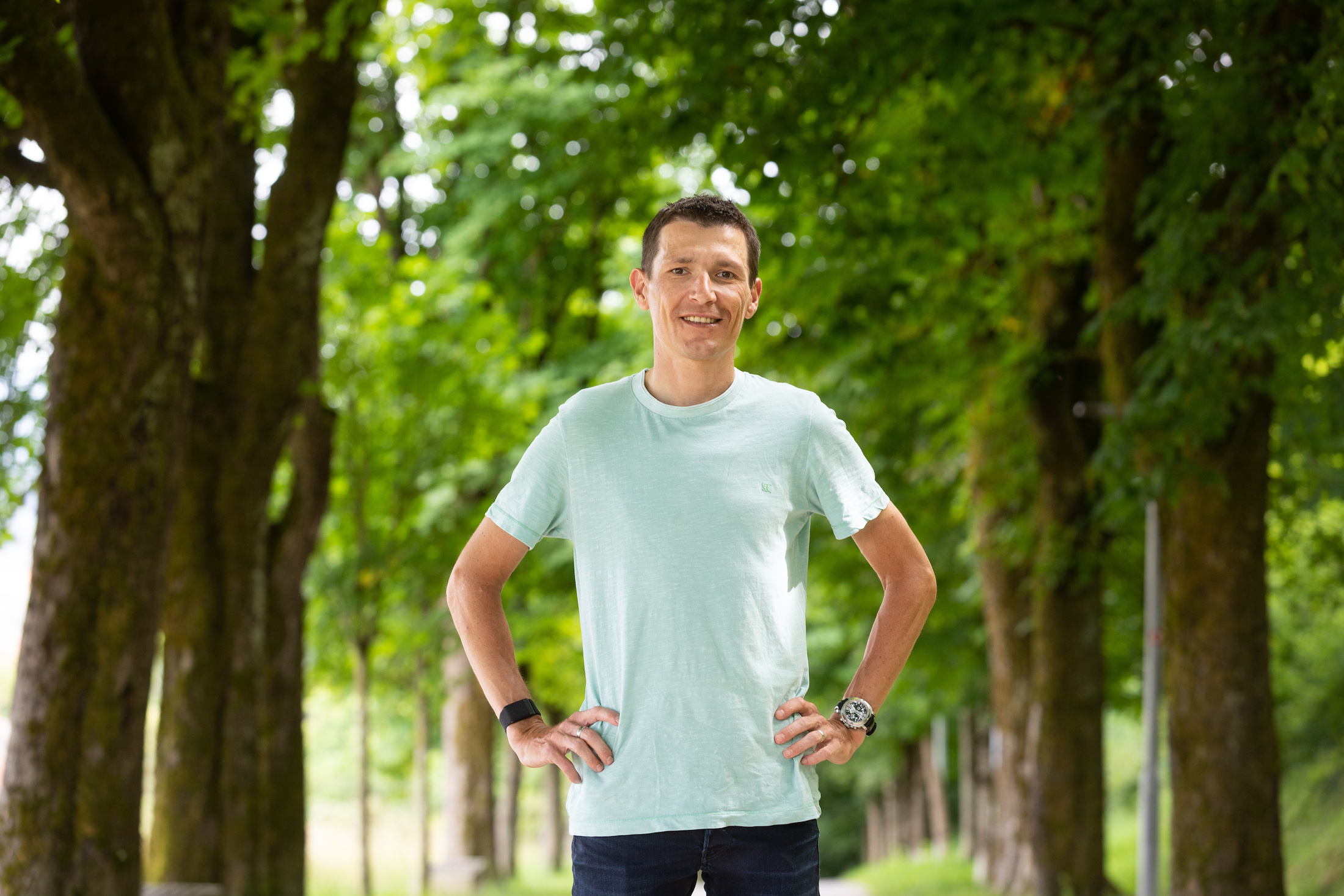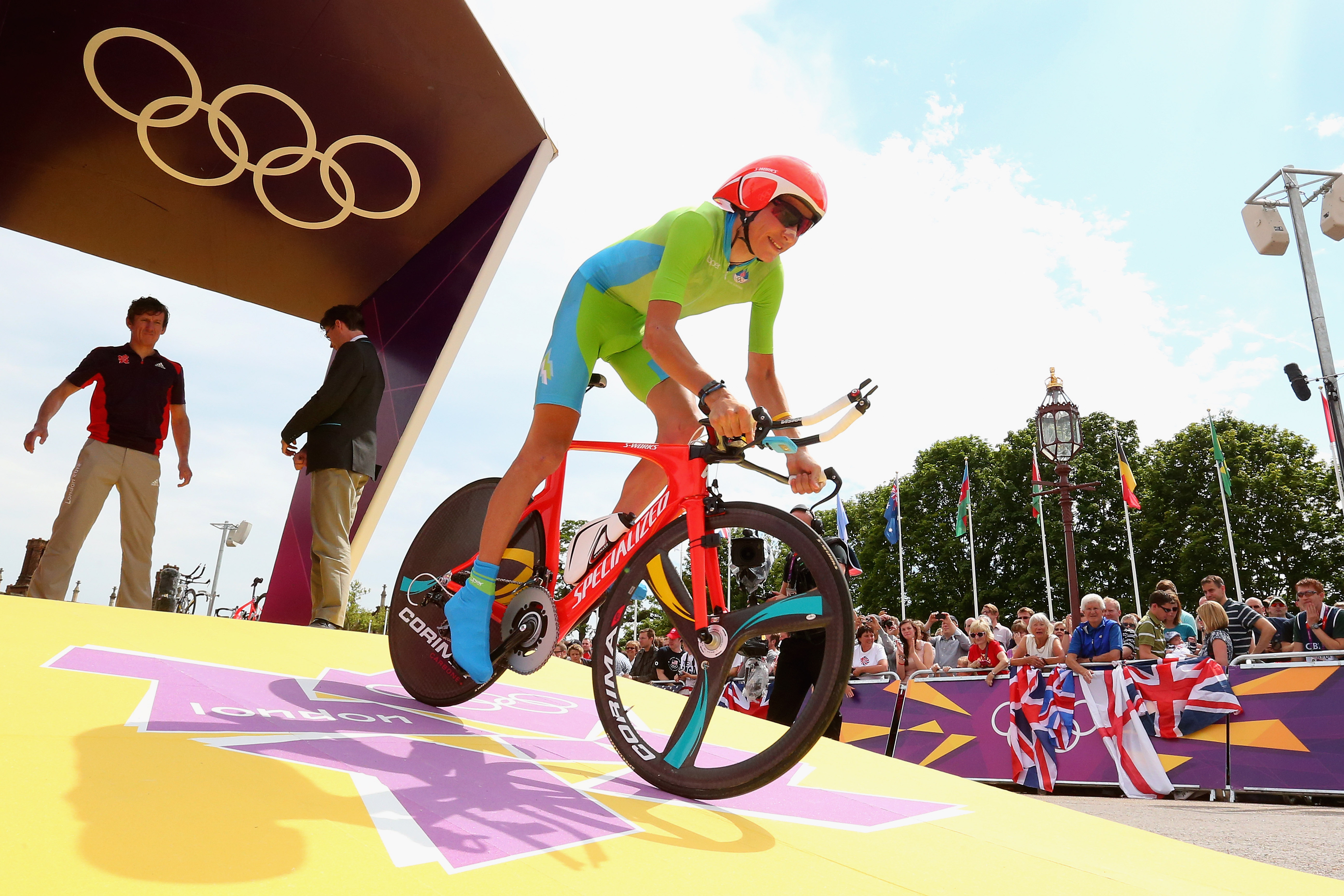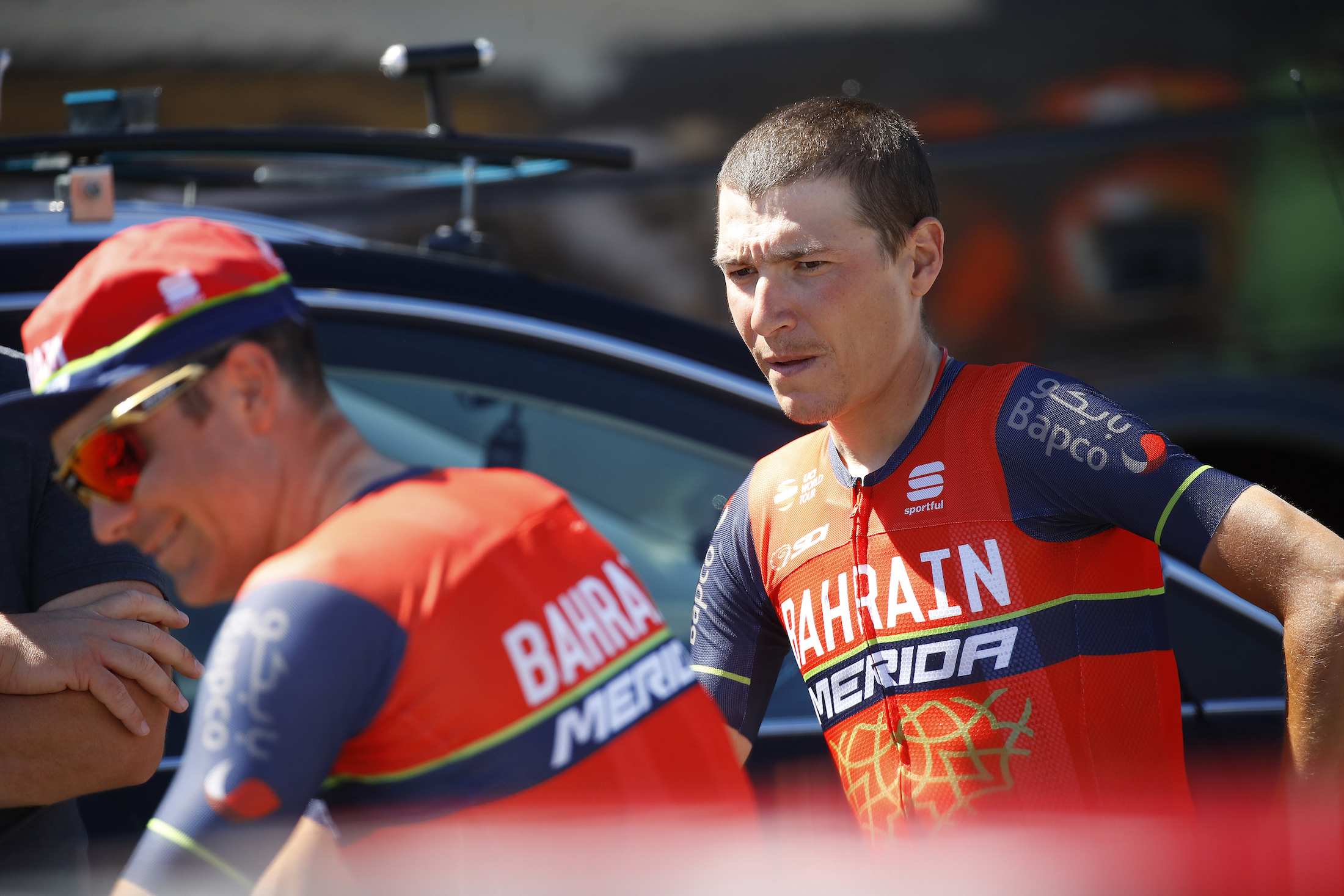Riding my bike and eating copious amounts of food felt liberating, but it was a vicious circle.
Jani Brajkovič's 17-year pro career, riding for some of the biggest teams in the world, masked deeper problems, that he is now in control of

The latest race content, interviews, features, reviews and expert buying guides, direct to your inbox!
You are now subscribed
Your newsletter sign-up was successful
Throughout his 17-year professional cycling career, Jani Brajkovič was never truly satisfied. "I had a great ability to put a mask on and pretend to be happy, proud and confident, but I knew I was in big trouble," the 41-year-old tells CW by video call from his home in Novo Mesto, Slovenia.
By 2004, the year he became U23 time trial world champion, a serious problem had set in: he had become addicted to cycling.
"I started with no knowledge of cycling, aged 17, and as a junior would ride 1,200km a week with only one day off." Along with the compulsive training came compulsive control of his eating.
"There were parts of my life that I didn't like and didn't have control over," says Brajkovič. "Riding my bike and eating copious amounts of food felt liberating. But it was a vicious circle: eat, purge, then binge again."
Bulimia, the cycle of bingeing and purging, had a vice-like grip on him. A studious young man, Brajkovič wasn't naive to the effect of his lifestyle.
"I read and analyse a lot, and I knew what I was doing was a plan for destruction," the Slovenian says, "but I wasn't strong enough to seek help. I was very introverted, and when you have an eating disorder your self-respect and self-confidence are below zero."
It didn't matter that he'd had a top ten finish at the Tour de France, or rode for some of the biggest teams - Discovery Channel, RadioShack and Astana - as a pro cyclist, he always felt alone, unsupported and in a downward spiral.
The latest race content, interviews, features, reviews and expert buying guides, direct to your inbox!

But now, more than two decades on, he's come through the other side and is determined to help others. "I knew other people with similar problems who couldn't find the answers, so I wanted to help them." At every step along the way, whatever team he was on, Brajkovič's habit of excessive training rarely changed.
"Even in years with little racing, I'd ride more than 40,000km." Before the arrival of Primož Roglič and Tadej Pogačar, he was Slovenia's best rider on the world cycling stage.
Two-hundred-kilometre solo rides were the norm for him. "In the morning, I'd have a breakfast of 3,000-4,000 calories, and I'd feel great because the dopamine was so high," he remembers.
"But when I was done, the sensation of guilt would come, and only when I purged would I feel liberated. From the outside, you think: it's simple, don't eat, don't throw up. But it's like being a drug addict who needs their fix. The only period in the day when I wouldn't binge and purge was when I was riding my bike."
"With bulimia, you slowly distance yourself from other people, as that allows you to do whatever you want. I'd do training camps by myself so no one could see me."
Jani Brajkovič
Brajkovič estimates that "on each team I raced on, 10-15% of riders struggled [with disordered eating]." Only occasionally could he wrest back control from his demons.
"The longest I was able to properly manage my food was 60 days," he says. These brief periods of control saw some of his best results, including winning the 2010 Critérium du Dauphiné and finishing ninth at the 2012 Tour de France.
Cycling has been criticised for not adequately addressing the issue of eating disorders, but Brajkovič points out that affected riders deliberately conceal the problem. "With bulimia, you slowly distance yourself from other people, as that allows you to do whatever you want. I'd do training camps by myself so no one could see me. Only one person, a team doctor in 2013, ever suspected I had a problem."
Brajkovič was fully conscious of the harm he was causing himself. He concluded that he had an addictive temperament - and feared what might have happened if he had not become a cyclist. "Alcohol abuse was prevalent in my family and I hated it," he says, "but I'm 100% sure I would have abused hard drugs." What makes him so sure? "Cycling allowed me not to feel those negative emotions.
Drugs do the same; they numb you." Cycling may be a safer addiction than class-A drugs - but Brajkovič was convinced the binge-purge cycle was slowly killing him. "After my contract [with Bahrain Merida] wasn't renewed in 2017, I lost hope that I'd ever fix my food issues, and I knew that people died from bulimia. I thought that was my destiny."

In 2019, while riding for Continental team Adria Mobil, Brajkovič's private fight took a dark turn: he was notified by the UCI that he had returned a positive test for banned substance methylhexaneamine, a stimulant marketed as a fat-loss supplement. Brajkovič claims he had unwittingly consumed the substance in a meal replacement powder and that only a trace amount was detected - though he accepts full responsibility.
During the proceedings, UCI officials accidentally copied him into an internal email chain in which, he claims, they were mocking him - though he refuses to specify the exact wording. The effect was profound. "If I hadn't had kids, I'd have committed suicide, 100%. I thought everything I had was being taken away from me, and there was no reason for me to live." He was banned for 10 months, but didn't return to competition at a Continental level until the summer of 2022.
Shortly afterwards, Brajkovič penned a blog revealing his struggles with bulimia. "With the ban, it really hit me: I thought, if I continue like this, I'll die from bulimia. I thought of my wife and three kids - what was I going to do?" He began to suspect he had harmed his health irreversibly. "Do this for six months, and you do some damage but it can be fixed. Do it for 17 years and there's a depletion of minerals in the body, chance of heart problems, and of course mental problems. I've done a lot of damage to my body."
"My learned solution was riding my bike - by blowing off steam, I would feel better. I was essentially abusing exercise rather than addressing the problems."
Jani Brajkovič
Acting on a recommendation, in 2020 Brajkovič met Aleš Ernst, the creator of the AEQ Method, a physical and mental therapy purporting to resolve chronic pain. The near-three-hour meeting changed his life. "He explained how for my whole life I had been ignoring and suppressing problems and emotions." The AEQ method is a psychosomatic process that aims to get at the root cause of deeply ingrained problems, unblocking repressed emotions to release tensions.
"I was raised in a household where, if there was a problem, everything went silent," Brajkovič remembers. "My learned solution was riding my bike - by blowing off steam, I would feel better. I was essentially abusing exercise rather than addressing the problems."
After just one AEQ method session, Brajkovič felt hope - at last. He regained control of his eating and his cycling. He became such a firm believer in the method's guided breathing and sensory awareness exercises that, within a year of therapy, he decided to become an AEQ teacher.
Since then, Brajkovič has created his own business, coining the "JB method", based on the AEQ method but adapted for athletes. He now assists a number of sportspeople, including some professional cyclists. "There is incredible potential in this method, but it won't happen quickly for everyone - it takes time. There will be painful realisations, but embrace it like I did, and it can change everything."
As he reflects on his extraordinary journey over the past two decades, during so much of which he was hiding a dark secret, Brajkovič now strives to assure others that there is always hope, always a solution. "If problems aren't addressed as soon as they happen, they pile up," he says. "The most important thing is having self-awareness - anyone who has that can overcome their problems."
A friend's view: He's a new man
Stewart Alan Howison, owner of Revolution Cycles Dubai, has been friends with Brajkovič for 15 years I first met Jani in 2010 when he was riding for RadioShack. He'd flown to Dubai to prepare for the Tour de France unaware it'd be 45°C so I loaned him a turbo trainer.
From there, we developed a friendship that has lasted to this day. As I got to know Jani, he seemed very introverted, someone who kept himself to him himself, as if his only goal in life was to ride his bike.
I knew he had a very restrictive diet, but I assumed that was the norm for elite cyclists. We had a conversation one night in my lounge over whisky: he told me everything - how he had starved his body, fuelling on cola alone. His transformation since then has been night-and-day.
He is a totally different person now, and we have long, deep conversations about everything. Ten years ago, he wasn't able to speak in front of people, but now he holds and inspires a room. He's a hive of knowledge that for years was all kept in a vault; now he just wants to share what he knows and his passion. He has a new zest for life.
If you've been affected by issues raised in this article, you can call (UK) Samaritans on 116 123; Mind on 0300 102 1234; the National Suicide Prevention Helpline on 0800 689 5652, or the Beat eating disorder helpline on 0808 801 0677
Founded in 1891, Cycling Weekly has long been at the forefront of professional and domestic racing. Our team of expert journalists also bring you in-depth product reviews, insightful fitness articles as well as long-read features. Our staff, and freelance writers, and passionate cyclists with an encyclopedic knowledge of their chosen sport.
You must confirm your public display name before commenting
Please logout and then login again, you will then be prompted to enter your display name.